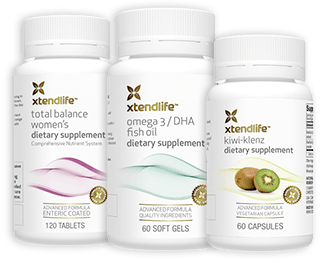What is The Dietary Supplement Act?
The Dietary Supplement Health and Education Act of 1994 (DSHEA) is the federal law that regulates the safety and sale of nutritional supplements in the United States. DSHEA was passed in response to the growing public debate about the importance of supplements, the need for accurate consumer information on them, and the government’s role in regulating them.
On signing the bill into law, President Clinton remarked that, “After several years of intense efforts, manufacturers, experts in nutrition, and legislators, acting in a conscientious alliance with consumers at the grassroots level, have moved successfully to bring common sense to the treatment of dietary supplements under regulation and law”
What is considered a dietary supplement?
DSHEA defines it as any product intended to supplement the diet which includes one or more of the following ingredients:
· a vitamin
· a mineral
· an herb or other botanical
· an amino acid
· something used historically or traditionally as a dietary supplement
· a concentrate, metabolite, constituent, extract, or combination of any of the above.
So, it can and does include a single nutrient product, e.g. green tea extract, as well as multi-nutrient products such as more comprehensive supplements or multivitamins.
According to DSHEA, a supplement can be taken in many different forms, including a capsule, softgel, powder, or liquid. However, the law is very clear that it must be labeled as a dietary supplement and cannot be represented as a conventional food or sufficient as a meal replacement.
Labeling and Review Process
In fact, labeling restrictions are one of the most significant parts of DSHEA. Because the law classifies supplements as a food rather than a drug (though still under the oversight of the FDA), the regulatory process is not as onerous. The focus rather, is on ensuring a level of safety and consumer confidence in supplements. A notification period prior to marketing of a new supplement allows the FDA to review new products for a 75 day period before it can be offered for sale.
Supplements must be labeled in a way that makes clear the name and quantity of all the ingredients. (In the case of a supplement with a proprietary blend, this means identifying each ingredient in the blend, in descending order of weight.) Information about the manufacturer and distributor, nutritional information, and any important safety information must also be included.
Finally, supplements are required to include the following disclaimer regarding any statements made on the packaging regarding the product’s benefits:
“This statement has not been evaluated by the Food and Drug Administration. This product is not intended to diagnose, treat, cure, or prevent any disease”
You've probably seen this disclaimer countless times on bottles of pills, magazine ads, commercials and television. For example, all of those weight loss supplement commercials have that exact statement in the fine print on the bottom of the screen.
Critics say DSHEA doesn't go far enough
While DSHEA did much to boost consumer confidence in supplements, some critics claim that it still does not do enough to curb the claims and products of unscrupulous companies. At least one recent study has found public support for greater FDA regulation of the industry, from safety to label claims.
The FDA has attempted to do more to ensure better practices in the supplement industry, and in 2007 implemented a “good manufacturing practices” policy to help improve quality of both the supplements themselves and product claims.
Though there are complaints that compliance with the FDA practices remains far too low, the ability to distinguish quality and trustworthy sources of dietary supplements has been a great help to those who depend on supplements for their health.
What we should do as consumers
As we're all quite aware, you can't rely on all manufacturers to create high quality supplements that do what they're intended or marketed to do. Likewise, you can't rely on the government to oversee every company making supplements and review every single product that makes it way to the marketplace. They simply don't have the resources or manpower to do the job properly.
So it's really in your hands. Make sure you research the company you buy your supplements from carefully. Find out how their products are created/manufactured/distributed. Is there any real science behind the formulation(s)? Are the ingredients really in there and are they natural or artificial?
You can read more about the supplements we take here just to get an idea of what to look for and how to find quality supplements. Educate yourself and reap the health benefits.
Read about why supplements get a bad rap or return to the HSG Home
Resources...
Search our site...
PREMIUM SUPPLEMENTS
The most advanced herbal supplements on the market
BULK HERBS AND TEAS
Need bulk herbs, teas, supplements and capsules?

